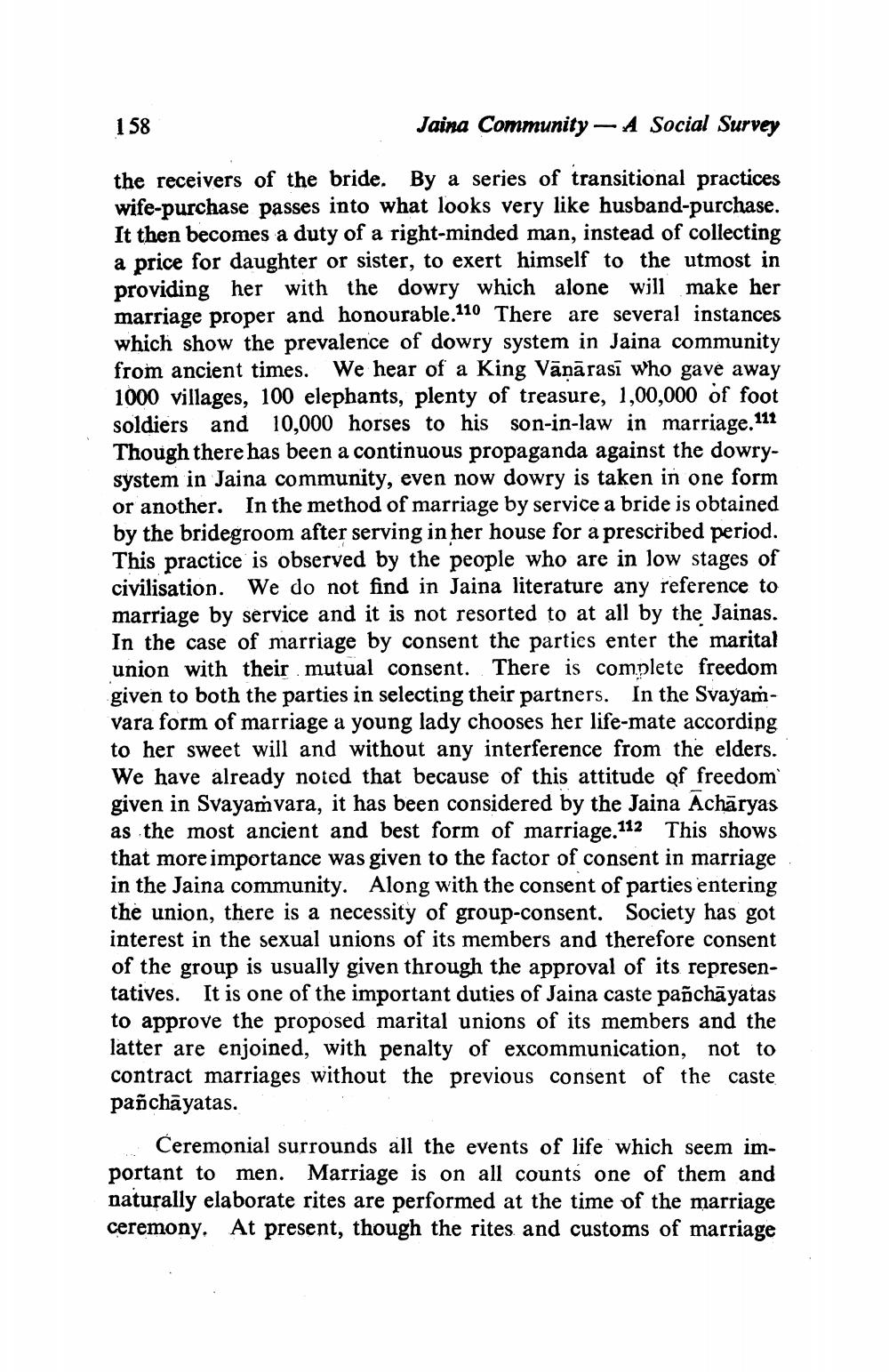________________
158
Jaina Community - A Social Survey
the receivers of the bride. By a series of transitional practices wife-purchase passes into what looks very like husband-purchase. It then becomes a duty of a right-minded man, instead of collecting a price for daughter or sister, to exert himself to the utmost in providing her with the dowry which alone will make her marriage proper and honourable.110 There are several instances which show the prevalence of dowry system in Jaina community from ancient times. We hear of a King Vānārasī who gave away 1000 villages, 100 elephants, plenty of treasure, 1,00,00 soldiers and 10,000 horses to his son-in-law in marriage. 111 Though there has been a continuous propaganda against the dowrysystem in Jaina community, even now dowry is taken in one form or another. In the method of marriage by service a bride is obtained by the bridegroom after serving in her house for a prescribed period. This practice is observed by the people who are in low stages of civilisation. We do not find in Jaina literature any reference to marriage by service and it is not resorted to at all by the Jainas. In the case of marriage by consent the parties enter the marital union with their mutual consent. There is complete freedom given to both the parties in selecting their partners. In the Svayamvara form of marriage a young lady chooses her life-mate according to her sweet will and without any interference from the elders. We have already noted that because of this attitude of freedom given in Svayamvara, it has been considered by the Jaina Achāryas as the most ancient and best form of marriage. 112 This shows that more importance was given to the factor of consent in marriage in the Jaina community. Along with the consent of parties entering the union, there is a necessity of group-consent. Society has got interest in the sexual unions of its members and therefore consent of the group is usually given through the approval of its representatives. It is one of the important duties of Jaina caste pañchāyatas to approve the proposed marital unions of its members and the latter are enjoined, with penalty of excommunication, not to contract marriages without the previous consent of the caste panchāyatas.
Ceremonial surrounds all the events of life which seem important to men. Marriage is on all counts one of them and naturally elaborate rites are performed at the time of the marriage ceremony. At present, though the rites and customs of marriage




